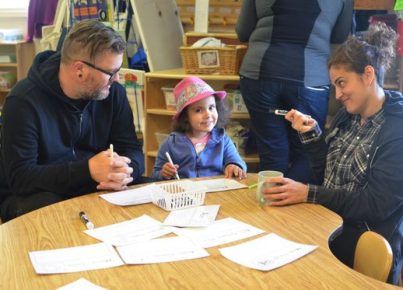As parents, we want the best for our children. So, when they are experiencing academic failure, we panic and rush in to save the day. However, in the process, we can’t see the forest for the trees and often focus on the wrong things. In the end, these mistakes end up making the child’s academic failure worse, mainly because we are obsessed with solutions, and often don’t take time to find what the underlying problems are.
In this piece, we will discuss 8 things that parents should avoid when responding to their child’s academic failure, as they are guaranteed to do more harm than good.
- Avoid blaming themselves and past family problems for their child’s issues. As a result, they may become tolerant of the child’s academic failure and behavior. Children may use this tolerance as an excuse to give up.
- Avoid angrily accusing the child of trying to hurt them. In turn, the child responds in angry and resentful ways, consequently resisting any attempts to improve their academic performance or behavior.
- Avoid blaming the teacher for their child’s academic failure. In response, teachers may feel resentful, avoiding contact with the parents and thus limiting any chance for a team approach to address the child’s issues and improve their opportunities for improvement and success.
- Avoid taking the child to a psychologist or counselor in the hope that they can “fix” the child’s problem or recommend a strategy that will get the child to become more academically inclined and behaviorally successful quickly. The problem with this is that parents can become frustrated with a therapist who spends more time identifying the problems than finding possible solutions.
- Avoid increasing the frequency and severity of punishments. As a result, the child can become even more determined to teach their parents that such punishments will not bring the results they want, no matter how harsh. The child may even begin to act out to hurt their parents deliberately.
- Avoid giving up trying to help, waiting instead for the child to come around on his own. However, parents continue to express their disappointment in the child’s poor performance, and the dialogue becomes increasingly negative, critical, and eventually, reinforcing.
- Avoid blaming themselves for the child’s problems, as this can lead to feelings of depression and guilt that are not helpful to anyone. If needed, the parent should talk to a trusted friend or counselor outside of the situation to discuss any feelings of frustration, guilt, worry, etc. to avoid becoming overwhelmed and alone. Parents should avoid those who speak negatively about the situation.
- Avoid comparing the child to any other child, as such comparisons can make the child feel unloved and devalued and will lessen the motivation to improve.
What did we miss?





These are good things to avoid, but then the questions still remains: what is a parent supposed to do when facing a child’s academic failure?